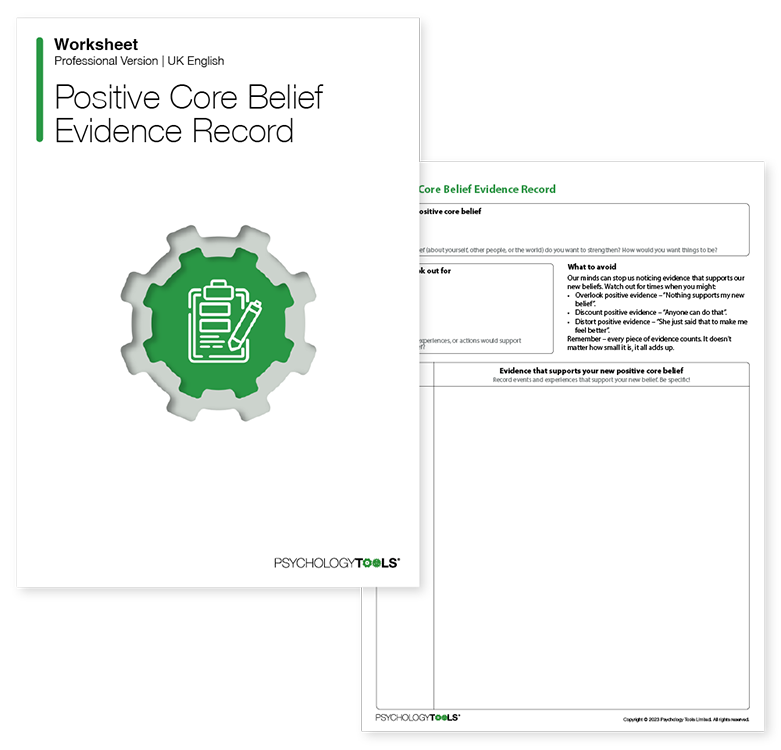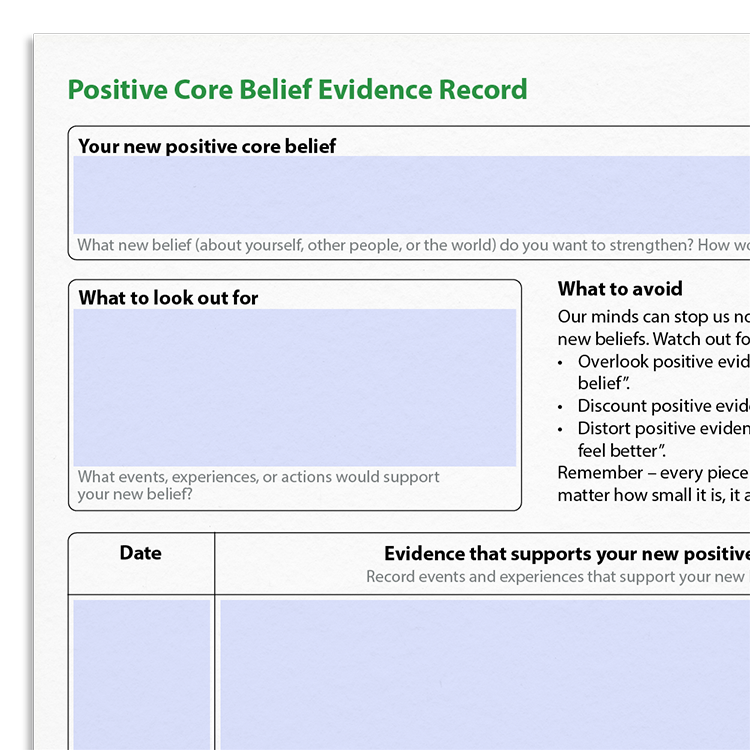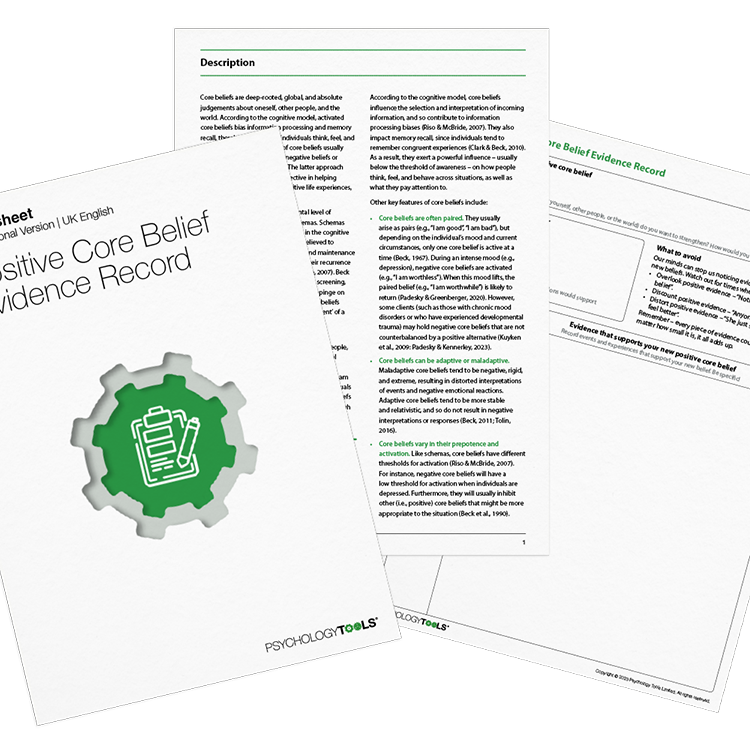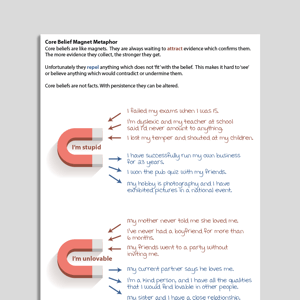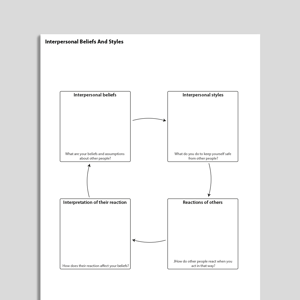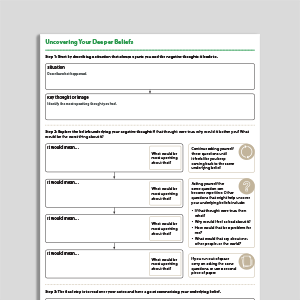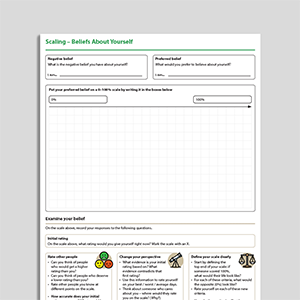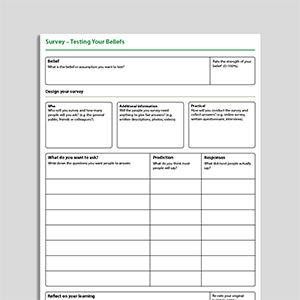Core beliefs can be addressed in different ways. One common approach involves the identification, re-evaluation, and empirical testing of negative core beliefs (e.g., Arntz, 2018; Young, 1999). Alternatively, therapists may focus on creating and strengthening clients’ positive core beliefs (e.g., Padesky, 1994; Greenberger & Padesky, 2016). Core beliefs can be addressed in different ways. One common approach involves the identification, re-evaluation, and empirical testing of negative core beliefs (e.g., Arntz, 2018; Young, 1999). Alternatively, therapists may focus on creating and strengthening clients’ positive core beliefs (e.g., Padesky, 1994; Greenberger & Padesky, 2016). Research suggests that targeting positive core beliefs has therapeutic potential. For example, positive schemas are associated with reduced emotional distress and symptomatology, as well as increased wellbeing, resilience, and life satisfaction (e.g., Chi et al., 2022; Cooper & Proudfoot, 2013; Louis et al., 2018).
